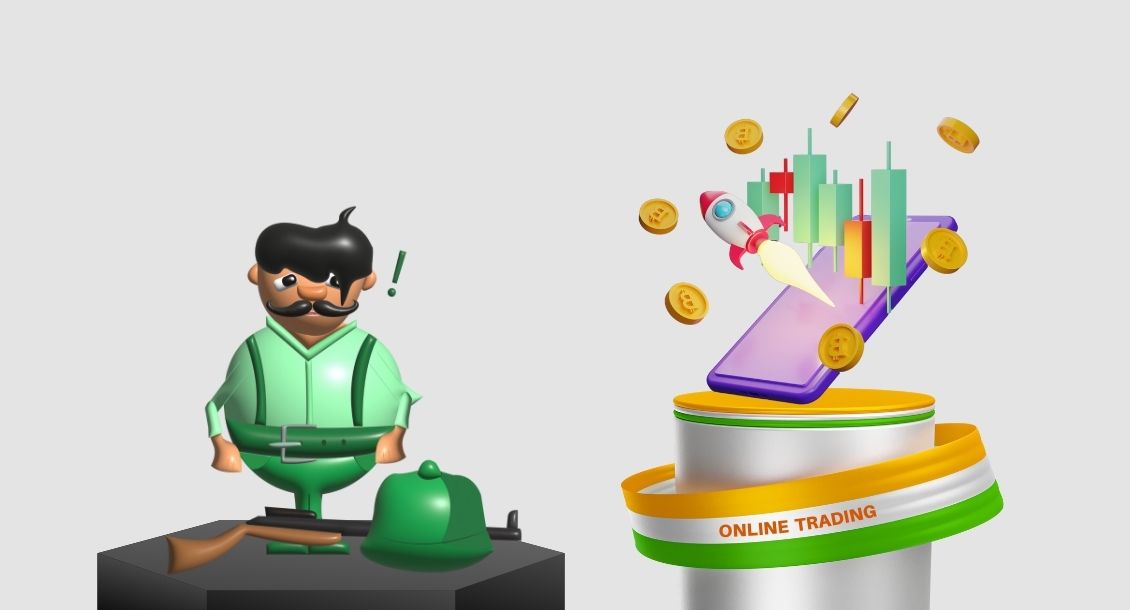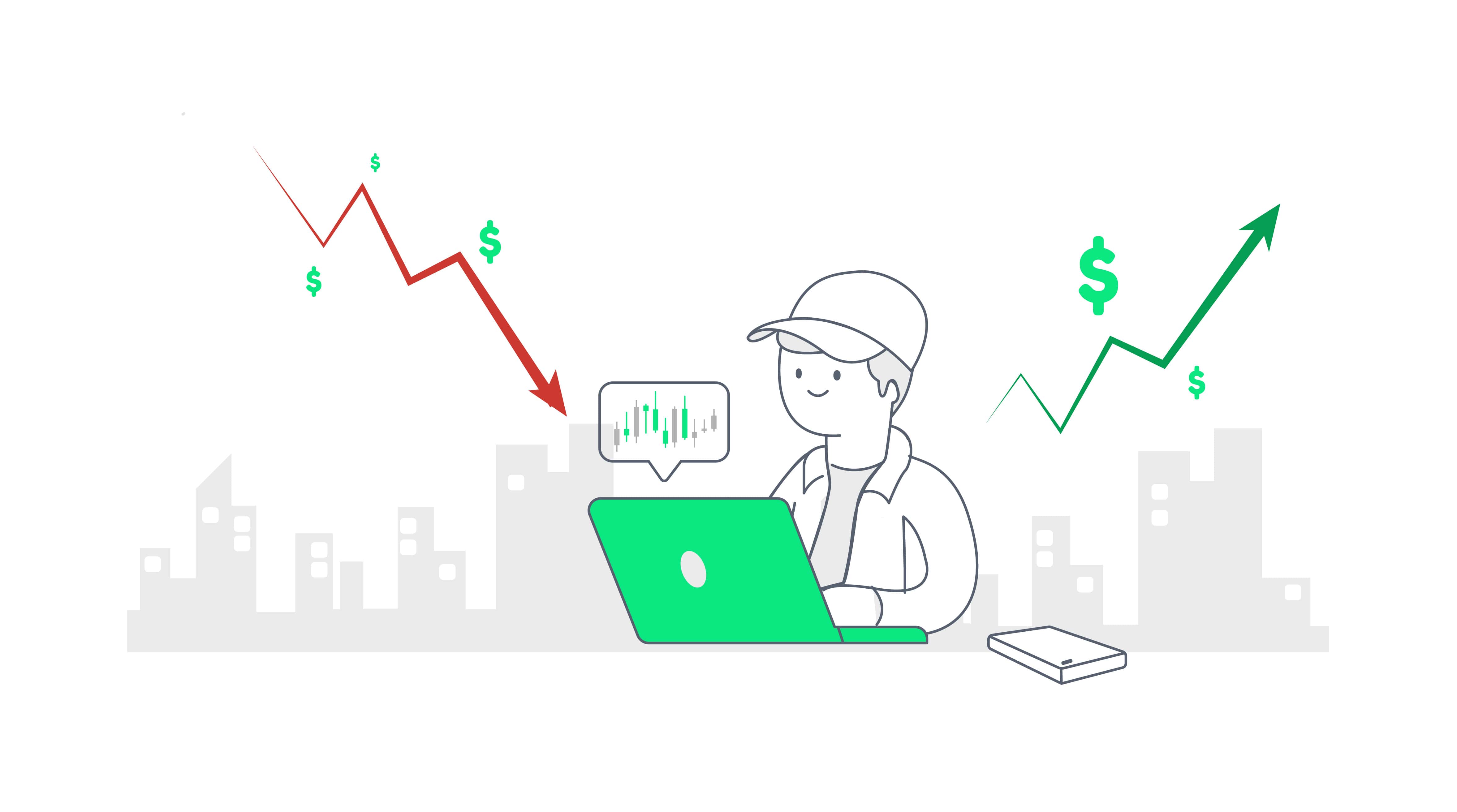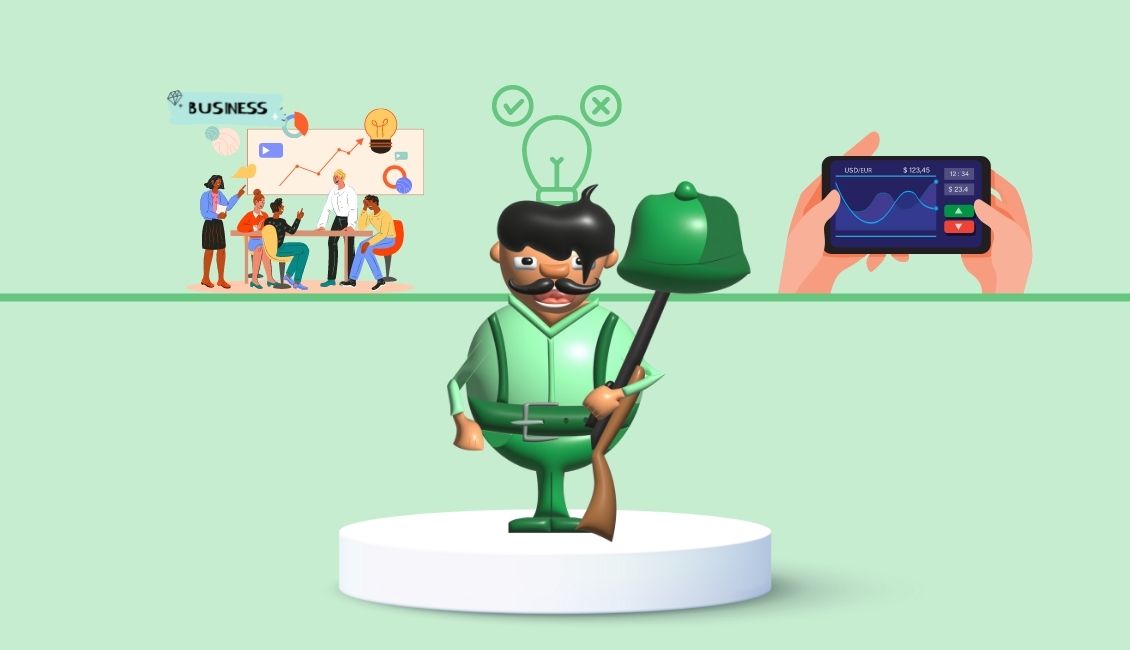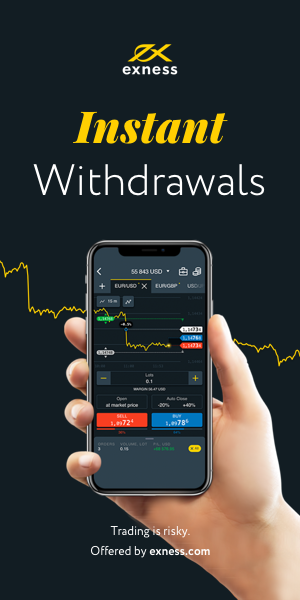Where can I learn online trading in India?
If you're looking to learn online trading in India, there are a few things you need to know. First, the Indian market is different from other markets around the world.
This means that there are different rules and regulations that you need to be aware of before starting to trade. Second, finding a reputable and reliable broker to help you get started is essential.
Luckily, we've compiled a list of some of India's best brokers for online trading. So whether you're a beginner or a seasoned trader, you should be able to find a broker that suits your needs.
Okay, no more talks; let's give a nosedive straight to the learning!
What is online trading?
Before starting to talk about the best online trading platform, you need to clarify your concept of online trading. Basically, Online trading is a virtual trading system with the help of the internet and your computer.
Through online trading, you can explore different exchanges. And If you want to work with a broker, you can also choose someone who has trading experience and offers you the best price.
Now the point is the online trading course requires an educational background. If you are interested in online trading courses, you must pass class 12th.
But some top institutes add an excellent GPA with a bachelor’s degree in a stock-related domain for the courses. Anyways the minimum requirement for online trading courses in India you need 50% marks to admit.
Online trading is a common means of transacting financial items through the internet. Brokers have gone online, with their websites offering a wide range of financial products such as equities, commodities, bonds, ETFs, and futures contracts.
-
Traditionally, when a buyer wished to invest money in stocks, he would phone his brokerage firm and request that a request be placed to acquire stocks of a specific business for a specific amount.
-
The broker would then inform him of the current market price of the stocks and confirm the order.
-
The order would be put on the stock market when the user confirmed his trading account, the broker's fees, and the time period necessary for the transaction.
-
This procedure, as you can see, took several phases and was somewhat lengthy.
Not unexpectedly, internet trading platforms have dominated the whole trade environment due to the following benefits:
-
Users may open, manage, and terminate accounts while sitting at home, using an internet-connected device.
-
Transactions are significantly easier to complete.
-
Multiple financial products, which previously had to be purchased from specific locations or banks, can now be purchased and sold online, reducing the role of an intermediary and saving time.
-
The money utilised is genuine, and the user is able to analyse and select from a variety of stocks and items.
Is there any benefit to trading online in India
Absolutely! There are many benefits to trading online in India.
First, online trading platforms typically charge lower fees than traditional brokers. This means that you can save money on commissions and other fees.
|
|
Second, online trading platforms offer various tools and resources to help you make informed trading decisions.
For example, many platforms offer real-time market data, charts and analysis, and news feeds. Third, online trading allows you to trade 24 hours a day, seven days a week.
This means you can take advantage of market opportunities as they arise, regardless of the time.
So, online trading might be suitable if you're looking to save money on commissions, access powerful trading tools, and trade around the clock.
What do I need to start trading online in India?
If you're looking to start trading online in India, there are a few things you need to know. First, the Indian market differs from other markets, so it's important to understand the nuances before starting trading.
Second, a few brokers offer online trading in India, so you'll need to choose one that best suits your needs. And finally, you'll need to open a Demat and trading account with a broker.
Regarding online trading in India, the most important thing is to choose a broker regulated by the Securities and Exchange Board of India (SEBI).
his ensures that your broker is legitimate and that your money is safe. Some top brokers that offer online trading in India include AssetsFX, Zerodha, Sharekhan, and 5Paisa.
Which is the best online trading course in India?
1. Smart Index Trader Programme.
This 'Smart Index Trader Programme' focuses on Nifty50 and Nifty Bank futures and options trading. This curriculum is meant to teach students active trading, day trading, and swing trading in the futures and options markets using a real market setting.
Program Highlights:
- Simulator based index trading
- Exclusive for Nifty50 & Nifty Bank
- F&O and intraday trading
- 110 hours online programme
- Interactions with industry experienced mentors
2. Portfolio Management Strategies.
ALPHABETA programs provide students a hands-on introduction to portfolio management. The learning is powered by simulation approaches that allow you to visualise stocks, ETFs, and funds, understand ideas, make decisions, and initiate trades like a portfolio manager using an interactive App. You will begin with simple principles and advance to more complicated techniques by employing both statistical and foundational methods.
Everything you'll learn in this course is based on solid academic research and is used by top real-world portfolio managers. This course's fundamentals serve as the foundation for everyday asset management of hundreds of billions of rupees.
There are 2 learning paths (certifications):
- Introduction to Portfolio Management
- Systematic Strategies for Equity Portfolio Management
3. Live Trading Strategies.
The NSE Academy is conducting a combined certification training on "Live Trading Strategies" in cooperation with Trading Campus. The way financial assets are exchanged has been transformed by Financial Markets. As a result, it is critical to have domain expertise in equity research, technical analysis, and algorithmic trading. In a highly competitive economy, technology and well-defined methods should be leveraged extensively to optimise results. Our goal is to deliver real-time market exposure through the use of simulators.
Program Highlights:
-
100 plus Hours of practical training on Real Time Markets
-
100+ built in strategies with back testing feature
-
Faculty with industry experience
-
Interpret, analyze and build strategies as per market behaviour
4. Intraday Trading Strategies.
Certified course that teaches students the actual application of Strategies for Trading Across Various Forex Pairs.
Program Highlights:
- Joint Certification Program By NSE Academy & Trading Campus
- Simulator Based Practical Training on Real Time Markets,Micro & Macro Parameters Affecting Forex Markets
- Price Action Analysis For Intraday Setups
- Master Swing Trading Strategies
- Hands-on Experience on Intraday Live Terminal
5. Capital Market Analytics.
NSE Academy & Trading Campus delivers "Capital Market Analytics," a certified course that provides students with in-depth knowledge of the capital market.
Programme Highlights
-
30 hours program
-
Practical Training to enhance knowledge and skill development
-
Comprehensive learning of all facets of Capital Market
-
Coursework Includes: Simulator logins, Web login containing Notes, Videos and Quiz5. Access to Simulator for one complete month after the workshop.
How do beginners learn to trade?
A newbie can learn to trade in a variety of ways:
- Use a broker: Find someone to perform the task for you or learn from him.
- Find the finest website: A company's development may be tracked via a variety of websites and mobile apps. For example, Etrader, TD Ameritrade, and Moneycontrol, among others.
- Examine stock quotations and tables: Stock tables are an excellent tool to examine stocks, but they may be challenging to understand. You'll have to figure out how to interpret them.
- Understand purchase and sell: The common thinking is to purchase when equities are cheap and sell when they are expensive. This is fantastic in idea, but challenging to put into practice. Buy equities that are gaining momentum.
- Please be patient: This is the most crucial aspect of trading. Be patient in difficult situations, and you will last longer in the game.
What's the best approach to learning?
What is the best strategy to keep learning? The ability to self-reflect or having expert individuals around you who can point out where you went wrong.
Trying to avoid mistakes? When investing, define your errors. Above all, how much are you willing to put at risk? Your brain is a turd - everyone has a breaking point - and you may not be aware of it, but a 30% loss on a trade (if never experienced before) may result in a feeling of pain (shouldn't) and you may wind up in some merry go round that you want to recover the same loss the same day. So plan beforehand!
Everyone should understand that if you have $100 and lose 30%, it is not fucking 30% to get your money back. It is more of an emotionally driven exchange out of loss of dignity or ego, while you must take greater risk than previously. It's no wonder that these people blow out their accounts!
…… and begin writing self-help 'how to trade' books for Amazon LOL. So, do you want to trade? Think. Reflect. Take a step back. Why? Keep peers on your level close by. Are you happy with your trade? Rinse and repeat.
Why did my trade become a profit? I assumed it would be lucrative since X, but was it? Try it out! Otherwise, you risk believing your own nonsense and blowing up your account.
Over time, you'll accumulate a highly diversified portfolio of various strategies, equities, algos, and so on. And the education never ends.
How to get started with online trading in India (Step by Step)
A newbie can learn to trade in a variety of ways:
-
Use a broker: Find someone to perform the task for you or learn from him.
-
Find the finest website: A company's development may be tracked via a variety of websites and mobile apps. For example, Etrader, TD Ameritrade, and Moneycontrol, among others.
-
Examine stock quotations and tables: Stock tables are an excellent tool to examine stocks, but they may be challenging to understand. You'll have to figure out how to interpret them.
-
Understand purchase and sell: The common thinking is to purchase when equities are cheap and sell when they are expensive. This is fantastic in idea, but challenging to put into practice. Buy equities that are gaining momentum.
-
Please be patient: This is the most crucial aspect of trading. Be patient in difficult situations, and you will last longer in the game.
What's the best approach to learn?
What is the best strategy to keep learning? The ability to self-reflect or having expert individuals around you who can point out where you went wrong.
Trying to avoid mistakes? When investing, define your errors. Above all, how much are you willing to put at risk?
Your brain is a turd - everyone has a breaking point - and you may not be aware of it, but a 30% loss on a trade (if never experienced before) may result in a feeling of pain (shouldn't), and you may wind up in some merry go round that you want to recover the same loss the same day.
So plan beforehand!
Everyone should understand that if you have $100 and lose 30%, it is not fucking 30% to get your money back. It is more of an emotionally driven exchange out of loss of dignity or ego, while you must take greater risk than previously. It's no wonder that these people blow out their accounts!
…… and begin writing self-help 'how to trade' books for Amazon LOL. So, do you want to trade? Think. Reflect. Take a step back. Why? Keep peers on your level close by. Are you happy with your trade? Rinse and repeat.
Why did my trade become a profit? I assumed it would be lucrative since X, but was it? Try it out! Otherwise, you risk believing your own nonsense and blowing up your account.
Over time, you'll accumulate a highly diversified portfolio of various strategies, equities, algos, and so on. And the education never ends.
Best place to learn online trading in India
There are many places where you can learn online trading in India. However, the best place to learn online trading in India would be through a Forex broker.
A Forex broker will provide you with all the tools and resources you need to trade online successfully.
In addition, a Forex broker will also offer you free education and support so you can trade effectively.
Tips for staying safe while trading online
When it comes to online trading, there are a few things you need to keep in mind to stay safe. First, ensure that you only trade with a reputable and trustworthy broker.
There are many scams out there, so you need to be careful. Second, always manage risk by setting stop losses and limiting your position sizes. And third, continuously diversify your portfolio to minimize your risks.
These are just a few tips to keep in mind when trading online. Stay safe and have good luck!
Conclusion
If you're looking to learn online trading in India, there are a few things you need to keep in mind. First, only trade with reputable and trustworthy brokers.
Second, always manage risk by setting stop losses and limiting your position sizes.
And third, continuously diversify your portfolio to minimize risks. Following these tips can stay safe and sound while trading online.

.gif)















